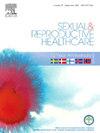探索女性主义在助产学和产科研究中的作用:范围综述
IF 1.7
3区 医学
Q3 PUBLIC, ENVIRONMENTAL & OCCUPATIONAL HEALTH
引用次数: 0
摘要
助产学、产科护理和女权主义理论的交叉研究仍未得到充分探讨,特别是关于其流行程度、背景和对助产学的潜在益处。女性主义观点从个人和结构两个层面探讨社会文化、经济和政治因素。在保健方面,这些因素严重影响妇女的健康。女权主义视角提供了更好地理解性别经验、解决系统性不平等的方法,并对社会文化、经济和政治动态有了更深入的了解。目的目的是展示如何将女权主义观点纳入助产学研究以及如何使用这些观点。方法于2023年12月在Medline、MIDIRS、CINAHL和SocINDEX中系统检索prisma - scr引导的范围评价。在过去十年中,以“女权主义”为关键词的英语和德语研究包括了助产和产科护理。对数据进行提取和描述性总结。模式和潜在的话语通过迭代过程来确定潜在的主题。研究结果从1523项记录中,包括246项研究。这些研究运用了交叉女性主义、后结构女性主义和女性主义批判理论等女性主义框架。许多研究集中在边缘群体。讨论的主题包括妇女和家庭的经验、保健需求、社会规范、伦理考虑、信息和决策以及技术的作用。女权主义观点强调妇女和边缘群体的需求,强调社会对健康的影响,同时提供分析性别动态、权力关系和系统性不平等的方法。本研究强调了将女权主义观点纳入助产科学的潜力,以开发更细致和公平的产妇护理方法。本文章由计算机程序翻译,如有差异,请以英文原文为准。
Exploring feminism in midwifery and maternity research: A scoping review
Background
The intersection of midwifery, maternity care, and feminist theory remains underexplored, particularly regarding its prevalence, contexts, and potential benefits for midwifery science.
Feminist perspectives address sociocultural, economic and political factors at both individual and structural levels. In health care, these factors significantly influence women’s health. Feminist perspectives offer approaches to better understand gendered experiences, address systemic inequalities, and gain deeper insights into sociocultural, economic and political dynamics.
Aim
The aim is to show how feminist perspectives are incorporated into midwifery research and how they are used.
Methods
A PRISMA-ScR-guided scoping review was conducted with systematic searches in Medline, MIDIRS, CINAHL, and SocINDEX, in December 2023. Studies over the last decade in English and German with the keyword “feminism” in midwifery and maternity care were included. Data were extracted and summarized descriptively. Patterns and underlying discourses were identified through iterative process to identify underlying themes.
Findings
From 1,523 records, 246 studies were included. These studies utilized feminist frameworks such as intersectional feminism, post-structural feminism, and feminist critical theory. Many studies focused on marginalized groups. Themes addressed included the experiences of women and families, healthcare needs, societal norms, ethical considerations, information and decision-making, and the role of technology.
Discussion
Feminist perspectives emphasize and contextualize the needs of women and marginalized groups, highlighting societal influences on health while providing approaches to analyse gender dynamics, power relations, and systemic inequalities.
Conclusion
This study highlights the potential for integrating feminist perspectives into midwifery science to develop more nuanced and equitable approaches to maternity care.
求助全文
通过发布文献求助,成功后即可免费获取论文全文。
去求助
来源期刊

Sexual & Reproductive Healthcare
PUBLIC, ENVIRONMENTAL & OCCUPATIONAL HEALTH-
CiteScore
2.70
自引率
5.60%
发文量
73
审稿时长
45 days
 求助内容:
求助内容: 应助结果提醒方式:
应助结果提醒方式:


